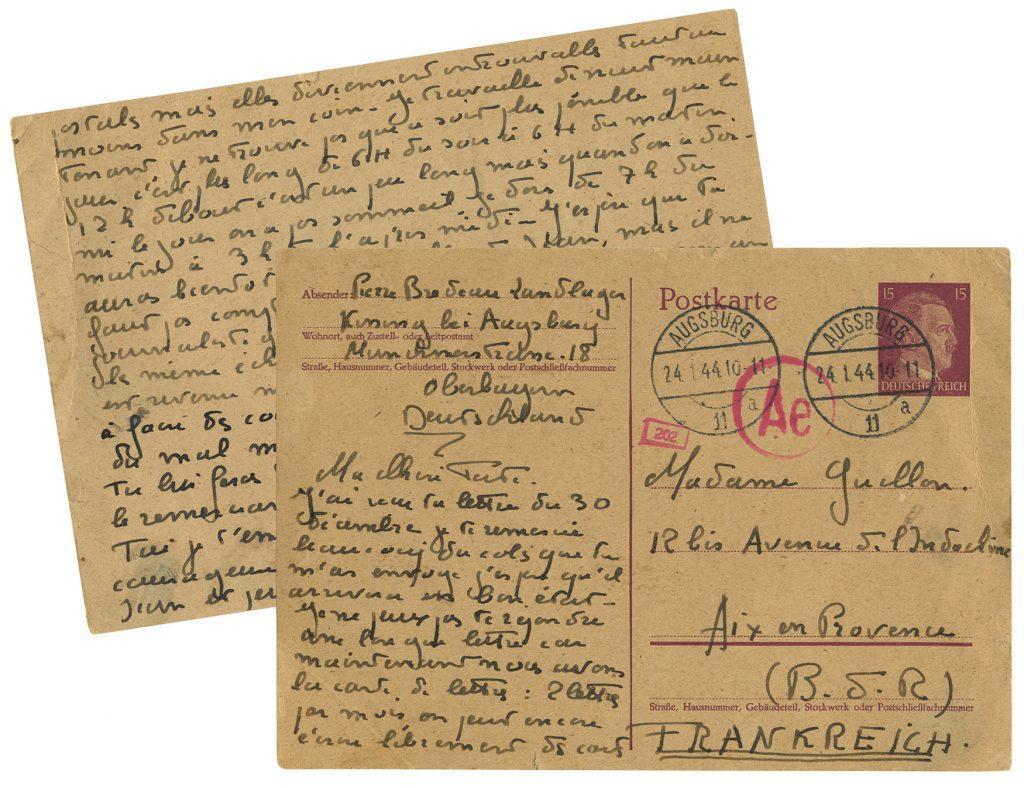January 24, 1944: “Two letters per month we can still write freely.”
I was surprised, but delighted, that my translator could read this writing. To me, it almost looks like shorthand! But, she continues to work miracles.
January 24, 1944
My dear Aunt,
I received your letter of December 30th. I thank you very much for the package that you sent me. I hope that it will have arrived in good shape. I cannot answer you in a long letter, because now we have cards. Two letters per month we can still write freely. Same with cards, but they are hard to find, at least in my area. I work better now. It isn’t more difficult now, but it is longer, from 6 in the evening to 6 in the morning. Twelve hours on your feet, it’s a little long, but when you have [illegible] during the day you are not sleepy. I sleep from 7 in the morning to 3 in the afternoon. I hope you will soon have news from Jean, but you must not count on it too fast; we have a journalist [illegible] who tried the same adventure, with the same failure, and he stayed 3 months in prison. He came back now. I feel sorry for Aline who has to teach seventeen year olds. She is going to have a hard time; I know the side of the [illegible]. Give her my best; to Ralph too and thank him for the [illegible] cigarettes. I kiss you warmly as I tell you to be strong. You will soon hear from [illegible] and soon, I hope, his return.
Pierre
————
Postscript: June 13, 2017
A reader name Jan van Es figured out what one of the illegible passages says! Jan wrote:
“… mais quand on a dormi le jour on a pas sommeil” which means: “but when you have slept during the day, you are not sleepy.”
Thanks, Jan!

